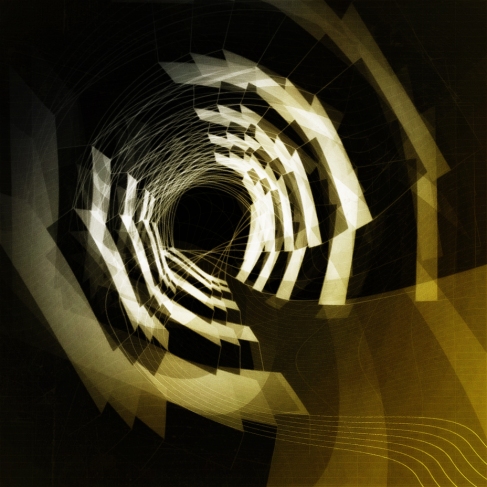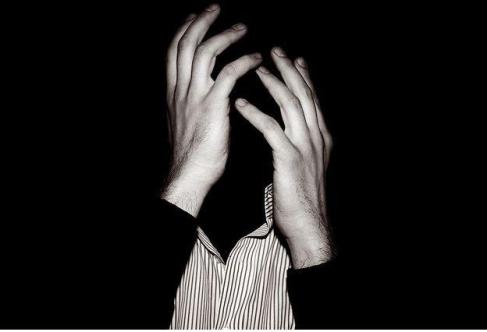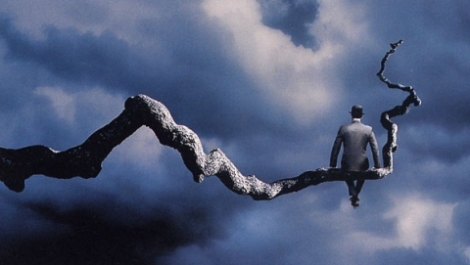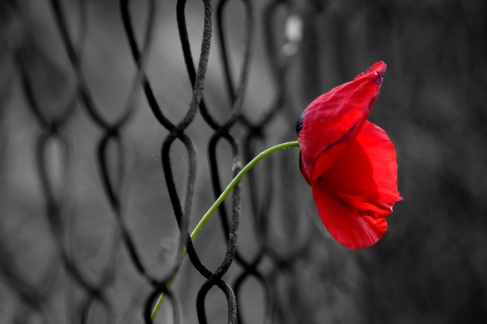Trilingual text
(thanks for the english version of Michaela)
Sometimes an absolutely genuine verse, the poetry that represents the now, the present, sneaks in between the epic turned into metaphor either sideways or delicately, and the imitative – repetitive romanticism, a strangled sort of classicism.. The large scale liquidation of illiteracy and more, mass- media, created the right climate for the emancipation of the half wits, these becoming not only willing to express themselves but also… equipped to do so. One of my Selves stretches over these ignorant areas, so I know.. from experience. Even though another one claims Upper trajectories! Starting with the premise that “taste is not a lavatory” and that “his highness, the reader” is the one who chooses, we are now moving into the critics area, critics who are either retro or too cheap – for a vodka, they’ll praise you to high heaven; or too expensive, in which case, not just any poet can afford them, but, the objective ones who are willing to break a sweat looking for the genuine in the ocean of scrap paper of today, are (because, they do exist) rare. I met, through their own merit, a few critics, very few, who are exacting and at the same time encouraging, who work for free to discover the bit of possible future poetry among the young writers… My opinion is that we need a number of young literary critics who would screen objectively, thus- regardless of the author, the texts that contain both a message and a form that are genuinely literary. I think that the higher literary forums should include the youth. And I am not saying at all that we should push our elders into the background, bury them alive. We imperatively need them, but not at a decisional level, sententiously, because they will inevitably classify the work of their contemporaries using most often antiquated filters… I think that we should go to the elders as we would to a teacher, a wise man, but only in order to help ourselves clean house, get rid of the dead parts, not have our young shoots cut by them… the fingers.. the enthusiasm – such as it is, insufficient without their experience, the experience of the elders. The title used above is either a commercial one or an intriguing one. It is an affirmation denied in itself because there is no life without poetry, even though the other way around is often possible… The speeds of the present, the informational field widened in an excessively dynamic manner, the moral crisis, the economic crisis, the perennial somebody-important-ism, the desire to become somebody without a work to show for and without a literary creed, not to mention the lack of internal turmoil, these are a few of the characteristics of a present which is apparently chaotic, apparently anarchical, clearly willing to bring attention upon itself, definitely wanton of applauses… How many of us applaud a sunset or a sunrise? None. We applaud names that are erased fast, and are worth no more than yesterday’s newspaper… When will we ever understand that what we need to promote to the readers is the work not a name? … The contemporary poets don’t exist without the contemporary poetry… The contemporary poetry doesn’t exist without the reader, thecritic, a praising and a disgruntled reader… that is, promoting the poetry and not the name of the author. The name will come out of anonymity only when the work is well sought by the readers, often times after the demise of the person behind the name. One cannot deny to an aspiring poet, dreaming of a pedestal, of lending his name to a high school or a street!… But a critic should help a writer send his message, not encourage forms without contents. It becomes a moral duty for all those involved in literature to bring solid arguments not for their own personal taste but for the judgment passed on the new work. They are to clearly state if they like it or not, but when they’re stating that the work is representative for the day, they need to support their statement with objective arguments. I think that literature is pro bono at the beginning. A good poet doesn’t ask for money, nor does the critic. Just as the reader does not ask for money for having read the work!… In order to become “consumer goods” and bring an income to the worker, because few know how writers build their writing pedigree, printing houses that appreciate literary value are needed in order to promote the top poets who stand out naturally. To write a book is one thing. To sell that book is another thing. The promotion of the book is made based on business and not literary criteria, to the desperation and profound disgust of the reading buyers.
Why am I left with the obsession in the title of this text: a century without poetry? Could it be a premonition?… Could it be an alarm bell, useless otherwise, because poetry does not need saviors as much as it needs genuine poets?… Could it be a trick to make you read this text?…
– Se la traduzione non è perfetta, la colpa è sempre mia
A volte un versetto assolutamente genuino, la poesia che rappresenta il presente, s’insinua tra l’epico trasformato in metafora obliquo o delicato, e il romanticismo imitativo-ripetitivo, una sorta di classicismo strozzato… La liquidazione su larga scala d’analfabetismo e di più mass-media, hanno creato il clima giusto per l’emancipazione dei cretini, questi diventando non solo disposti ad esprimere se stessi, ma anche … attrezzati per farlo (uno dei miei Sé estende su queste aree degli ignoranti, quindi lo so … per esperienza. Anche se un altro „io” sostiene traiettorie superiori!) …Partendo dal presupposto che „il gusto non è un gabinetto” e che „Sua Altezza, il lettore” è chi sceglie, ora stiamo andando verso la zona critica, i critici che sono o retrò o troppo a buon mercato – per una vodka, essi ti lodiano fino al cielo, o troppo costosi, in questo caso, non ogni poeta può permettersi uno di loro, ma, quelli oggettivi che sono disposti a rompere un sudore cercando la genuinità in un oceano di carta straccia d’oggi, ci sono (perché, essi esistono) raro, ma…. Ho conosciuto, attraverso il loro merito, alcuni critici, molto pochi, che sono esigenti e al tempo stesso incoraggianti, che lavorano gratuitamente per scoprire il pezzo di poesia possibile del futuro tra i giovani scrittori … La mia opinione è che abbiamo bisogno di un numero di giovani critici letterari che avrebbe schermo oggettivamente, quindi, indipendentemente dall’autore, i testi che contengono sia un messaggio ed una forma che sono genuinamente letterario. Io penso che i forum letterari più elevati dovrebbero includere i giovani. E non sto dicendo affatto che dobbiamo spingere i nostri anziani in secondo piano, seppellirli vivi. Abbiamo imperativamente bisogno di loro, ma non ad un livello decisionale, sentenzioso, perché saranno inevitabilmente classificare il lavoro dei loro contemporanei che utilizzano filtri più spesso antiquati … penso che dovremmo andare agli anziani come faremmo ad un insegnante, ad un uomo molto saggio, ma solo al fine di aiutare noi stessi per liberarsi delle parti morte, non per tagliarci i nostri germogli … le dita … l’entusiasmo – così com’è, insufficiente senza la loro esperienza, l’esperienza degli anziani. Il titolo usato sopra o è uno commerciale o uno intrigante. Si tratta di un’affermazione negata a se stesso, perché non c’è vita senza poesia, anche se il contrario è spesso possibile … Le velocità del presente, il campo informativo allargato in maniera eccessivamente dinamico, la crisi morale, la crisi economica, la perenne qualcunismo, il desiderio di diventare qualcuno senza un lavoro da mostrare e senza un credo letterario, per non parlare della mancanza di sofferenze interne, queste sono alcune delle caratteristiche di un presente che è apparentemente caotico, apparentemente anarchico, chiaramente disposti a portare l’attenzione su di sé, sicuramente sfrenata d’applausi … Quanti di noi applaudono un tramonto o un’alba? Nessuno. Ci complimentiamo con i nomi, che sono cancellati veloce, e vale non più di giornale di ieri … Quando potremo capire che abbiamo bisogno di promuovere ai lettori il lavoro non un nome? … I poeti contemporanei non esistono senza la poesia contemporanea … La poesia contemporanea non esiste senza il lettore, i critici, un elogio e un lettore scontento … vale a dire, promuovere la poesia e non il nome dell’autore. Il nome verrà fuori dell’anonimato solo, quando il lavoro è ben ricercato dai lettori, spesso volte dopo la scomparsa della persona dietro il nome. Non si può negare ad un aspirante poeta, sognando un piedistallo, di prestare il suo nome ad una scuola superiore o di una strada! … Ma un critico dovrebbe aiutare uno scrittore di mandare il suo messaggio, non incoraggiando le forme senza contenuto. Diventa un dovere morale per tutti quelli che sono coinvolti nella letteratura per portare argomenti solidi non per il proprio gusto personale, ma per il giudizio sul risultato del nuovo lavoro. Essi possono indicare chiaramente se gli piace o no, ma quando stanno affermando che il lavoro è rappresentativo per il presente, hanno bisogno per sostenere la loro affermazione con argomenti oggettivi. Penso che la letteratura è sempre gratis all’inizio. Un buon poeta non chiede soldi, né il critico. Proprio come il lettore non chiede soldi per aver letto la tua opera! … Per diventare „beni di consumo” e portare un reddito per lo scrittore, perché pochi sanno come gli scrittori costruiscono il loro pedigree, editori che apprezzano il valore letterario sono necessari al fine di promuovere i migliori poeti che si sono distinti in modo naturale. Per scrivere un libro è una cosa. Per vendere quel libro è un’altra cosa. La promozione del libro è fatta in conformità a business e non i criteri letterari, alla disperazione e profondo disgusto degli acquirenti di lettura.
Perché ho fatto l’ossessione per il titolo di questo testo: un secolo senza poesia? Potrebbe essere una premonizione? … Potrebbe essere un campanello d’allarme, altrimenti inutile, perché la poesia non ha bisogno di salvatori tanto quanto ha bisogno di poeti veri? … o potrebbe essere un trucco per farvi leggere questo testo?…
Între epicul metaforizat pieziş ori delicat şi romantismul copiativ-repetitiv, clasicism gâtuit, se strecoară şi câteun vers absolut autentic, poezia care reprezintă ziua, prezentul…
Alfabetizarea masivă şi mai mult, sursele mass-media, au creat climatul emancipării nătângilor, aceştia devenind nu doar dornici de exprimare… dar şi cu mijloacele necesare.
Unul dintre eurile mele se lăţeşte peste aceste zone nătângoase, deci ştiu… pe viu. Chit că un altul pretinde sus-uri!!!
Plecând de la premisa că „gustul omului nu-i latrină” şi că „măria sa cetitoriul” selectează, trecem spre zona criticilor care ori sunt retro, ori prea ieftini, pe-o vodcă te ridică-n slăvi, ori prea scumpi, unde nu orice poet îşi permite, dar rari sunt (deci sunt) cei obiectivi care doresc să „asude” căutând autenticul în oceanul de maculatură a zilei.
Am cunoscut, din meritul lor, câţiva, foarte puţini, critici care sunt exigenţi şi în acelaşi timp încurajatori, care muncesc gratis să descopere dramul de posibilă viitoare poezie în tinerii scriicioşi…
Cred că avem nevoie de o serie de critici literari tineri care să filtreze obiectiv, deci – dincolo de autor, textele care conţin şi mesaj şi formă de prezentare autentic literare.
Cred că în forurile literare înalte trebuiesc promovaţi tineri.
Şi nu spun deloc să ne trimitem bătrânii prin subpaturi, să-i îngropăm de vii, avem imperioasă nevoie de ei, dar nu la nivel decizional, sentenţiar, fiindcă inevitabil vor clasifica opera prezentului prin filtre adesea mucegăite… Cred că ar trebui să mergem la bătrâni ca la un învăţător, înţelept, dar numai pentru a ne ajuta să ne curăţim uscăciunile, nu să ne taie dânşii vlăstarele… degetele… entuziasmul – chiar şi aşa cum este, insuficient fără experienţa lor, a bătrânilor.
Titlul de mai sus este ori unul comercial, ori intrigant. Este o afirmaţie negată în sine deoarece nu există viaţă fără poezie, chiar dacă invers deseori da…
Vitezele prezentului, câmpul informaţional lărgit dinamic excesiv, criza morală, criza economică, cinevaismul peren, dorinţa de celebritate fără operă şi fără un crez artistic, să mai spun şi fără suferinţă interioară?… – acestea sunt câteva trăsături ale unui prezent care este aparent haotic, aparent anarhic, net dornic de impunere, net pofticios la aplauze…
Câţi dintre noi apaludă un apus de soare? Sau un răsărit? Nu. Apludăm nume care sunt şterse repede, valorează cât ziarul de ieri…
Când vom înţelege că opera trebuie împinsă în atenţia cititorilor şi nu un nume? Poeţii zilei nu există fără poezia zilei…
Poezia zilei nu există fără un cititor, un critic, un lăudac şi-un gigicontra… adică promovată ea şi nu numele autorului, numele se va trezi din anonimat abia când se poate vorbi de o operă literară râvnită de cititori, adesea după moartea omului din spatele numelui.
Nu poţi interzice niciunui aspirant la poezie să se viseze deja statuie, nume de liceu, de stradă!… Dar nici să nu-l ajuţi să urce valoric prin forţa unui mesaj, unei prezentări a acelui mesaj în forme literare.
Devine o datorie morală a tuturor implicaţi în literatură să argumenteze temeinic nu gustul personal ci sentinţele date operelor noi. Să spună limpede că îi place sau nu, dar când afirmă că este o operă reprezentativă zilei, trebuie argumente obiective.
Cred că literatura începe gratis. Un bun poet nu pretinde bani, nici un critic, cum nici cititorul nu pretinde bani pentru că te-a citit!…
Pentru a deveni un bun comercial şi a aduce venit truditorului, fiindcă puţini ştiu cum se ajunge scriitor cu operă, este nevoie de edituri iubitoare de valoare literară care să promoveze vârfurile emanate natural.
A fi autor de carte este una, a ţi se vinde bine cartea este alta. De regulă promovarea se face pe criterii comerciale şi nu literare, spre disperarea şi dezgustul cititorului-plătitor.
De ce rămân cu obsesia din titlul acestui text: secol fără poezie? O fi din cauza unei premoniţii?… O fi un semnal de alarmă, inutil dealtfel, deoarece poezia nu are nevoie de salvatori cât de autori autentici?… O fi un şiretlic să îmi fie citit textul de faţă?…
photos by internet




Reblogged this on remedy for soul.
ApreciazăApreciază
Reblogged this on Domain Godzilla.
ApreciazăApreciază
Reblogged this on color of the world.
ApreciazăApreciază
Excelent eseu, cu observatii pertinete! Felicitari!
ApreciazăApreciază
mulţumesc, am reformulat textul dar nu am tradus încă, poate azi… îl poţi citi pe ,,negru pe alb,,
ApreciazăApreciază
L’ha ribloggato su valeriudgbarbu2ite ha commentato:
Add your thoughts here… (optional)
ApreciazăApreciază
Reblogged this on blogvaleriudgbarbu.
ApreciazăApreciază
Your piece makes a huge amount of sense, Valeriu – and, although you are starting from the poet’s perspective, I feel it has wider implications for novelists, bloggers, and so on. I very much like the points you make about youth and age, about the wise man and cleaning house: brilliant! I also totally agree with your stance on the Name. We seem, as a society, to have forgotten the sublime nature of fine writing, of literary beauty, of imaginative uses of literary techniques; we seem, instead, to be obsessed by the story, the sordid trigger, the celebrity hook which reels in the credulous ‘fish’.
I am thoroughly enjoying your ‘take’ on writing, on the world, thus far – and, as an aspiring writer myself, I can identify with much that you say.
I do not think the poets and the creative writers will fade from view because there is a deep need, at the Collective Unconscious, at the level of soul, for us; I just hope that this inner yearning will filter through into the conscious realms.
Thank you for your comment on my name. It is a very unusual one. I live in the UK and have never met another one! Alienora
ApreciazăApreciază
Alienora, only I’m trying to figure out for myself what would be the way to go as a writer, I love the youth, love the world, I love UK
ApreciazăApreciază
Haha! Either way I read it! Lol
You are one deep thinking man, Valeriu! 🙂
And a great poet! 🙂 hugs to you. Paula xx
ApreciazăApreciază
I have good readers, for this … I like the hug is welcome Paola
ApreciazăApreciază
Thank you! Nite from Oz!! Xx
ApreciazăApreciază
I guarantee… that was no trick pony.
ApreciazăApreciază
thank you so much
ApreciazăApreciază